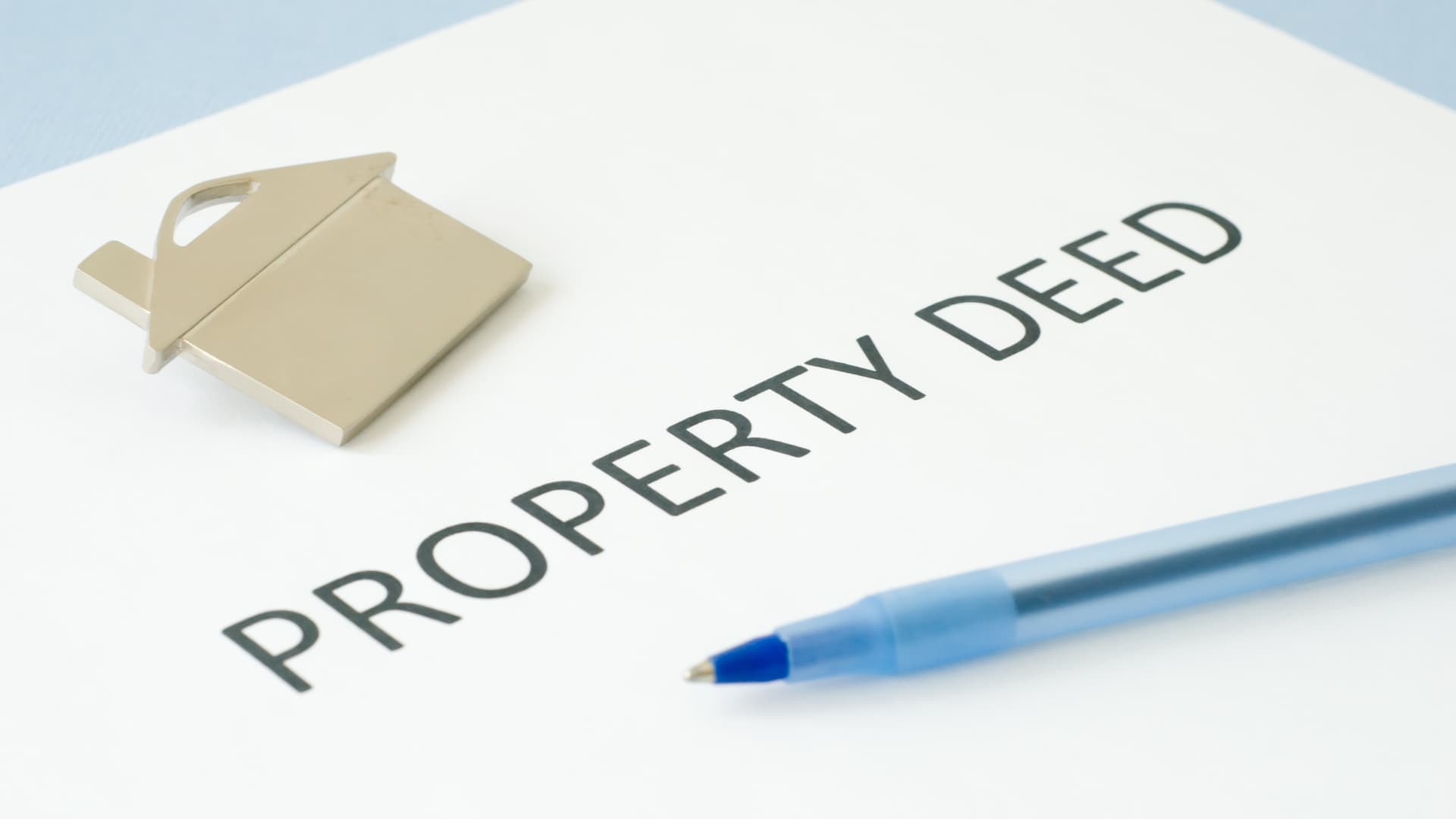Key Takeaways for the Types of Deeds in Florida:
- Not all deeds offer the same protection. General warranty deeds offer the strongest legal safeguards, while quit claim deeds offer virtually none.
- Special warranty deeds limit liability to the seller’s ownership period and are more common in commercial transactions.
- Fee simple deeds transfer ownership with no warranties, making title insurance essential.
- Specialized deeds like fiduciary or life estate deeds serve unique roles in probate and estate planning, often requiring legal guidance.
This article is part of our Real Estate Articles collection and relates to our Real Estate Law services. It is provided for informational purposes only, does not constitute legal advice, and does not create an attorney-client relationship. Please review our Legal Disclaimer or schedule a complimentary consultation for guidance specific to your situation.
When buying or transferring property in Florida, the type of deed used in the transaction can have a significant impact on ownership rights and protections.
Whether you’re purchasing a new home, gifting property to a family member, or investing in real estate, understanding the different types of deeds is crucial to ensuring a smooth and legally sound transfer.
In this guide, we examine the most common types of deeds used in Florida and explain their purposes, benefits, and potential risks. By the end, you’ll have a clear understanding of which deed best fits your situation and how to protect your property rights.
Primary types of Deeds
In Florida, there are four basic types of deeds upon which more specialized deeds are premised.
The primary types of deeds are the (1) Warranty Deed, the (2) Special Warranty Deed, the (3) Fee Simple Deed and the (4) Quit Claim Deed. They are differentiated by the level of protection provided to the grantee or recipient of the subject property.
Specialized deeds such as a fiduciary deed (such as a Personal Representative’s Deed, Trustee’s Deed, Guardian’s Deed) and life estate deed are created based on one of primary types of deeds.
The following is an overview of each of the primary deeds followed by their more specialized uses in Florida:
Speak with Attorney Anila Rasul About Your Florida Real Estate Needs
Whether you’re transferring property, resolving title concerns, or planning for your family’s future, I’m here to help you protect what matters most. Schedule your complimentary consultation today—I look forward to speaking with you personally.
1. General Warranty Deed
A general warranty deed conveys both fee simple title (full and complete ownership of property, which can be inherited by the owner’s heirs or devised by the owner’s will or trust to the owner’s beneficiaries) to a buyer as well as provides “covenants of title”. Covenants of title are legally binding guarantees from the seller to the buyer in a transaction. These covenants protect the buyers in that it allows them to sue a seller if a warranty deed is executed incorrectly or untruthfully.
In Florida, the general warranty deed is the most often used deed in residential real estate transactions and is even referenced throughout standardized contracts, such as the Florida Realtors® and The Florida Bar’s co-authored standard “AS IS” Residential Contract for Sale and Purchase or the Contract for Residential Sale and Purchase, which is also approved by Florida Realtors®.
To establish the required covenants of title for a warranty deed, the seller must satisfy the following:
- Covenant of Seisin – meaning that the seller legally owns and possesses the subject property being sold or transferred.
- Covenant of the Right to Convey – meaning that the seller has the legal authority to actually transfer ownership of the property.
- Covenant Against Encumbrances – meaning the seller warrants that there are no undisclosed liens or claims against the property.
- Covenant of Quiet Enjoyment – meaning the buyer will have undisturbed ownership.
- Covenant of General Warranty – meaning if a claim arises, then the seller will defend the buyer’s title.
Unlike the other primary types of deeds in Florida, a general warranty deed extends to all prior owners. This means that if a title defect arises as a result of a prior owner’s actions, then the current seller remains liable for fixing the deficiency. As such, it provides the greatest protection to a buyer in a transaction and, for this reason, it is typically mandated by title insurance companies prior to issuing title insurance.
Florida law provides significant guidance on this matter. For example, Florida statute 689.02 provides a one-sentence version of the general warranty deed requirements which satisfies the five covenants. The entire statutory suggested language is as follows:
“This indenture, made this day of A.D. , between, of the County of in the State of , party of the first part, and, of the County of , in the State of , party of the second part, witnesseth: That the said party of the first part, for and in consideration of the sum of dollars, to her or him in hand paid by the said party of the second part, the receipt whereof is hereby acknowledged, has granted, bargained and sold to the said party of the second part, her or his heirs and assigns forever, the following described land, to wit:
And the said party of the first part does hereby fully warrant the title to said land, and will defend the same against the lawful claims of all persons whomsoever.”

2. Special Warranty Deed
Special warranty deeds are also utilized in residential real estate transactions in Florida, although they are more commonly seen in commercial real estate transactions.
They are similar to general warranty deeds but with one significant difference – they limit the seller’s liability only to the duration within which they owned the property and not to defects arising from prior owners.
Therefore, in Florida, a special warranty deed only includes the covenant of seisin, right to convey, covenant against encumbrances and the covenant of quiet enjoyment.
3. Fee Simple Deed
Conversely, a fee simple deed, also known as a freehold deed, conveys full ownership of a property without any guarantees or covenants of title.
With these deeds, a seller does not warrant that they own the property free of liens or defects (thereby making title insurance even more important for a potential buyer).
Unlike the warranty deeds, a fee simple deed has no specific language providing a warranty or the covenants of title.
However, the buyer is granted the right to use, sell or pass on the property as they see fit.

4. Quit Claim Deed
Quit claim deeds provide the least amount of protection to real estate buyers in Florida as it does not guarantee ownership transfer to a buyer.
Instead, a quit claim deed simply relinquishes whatever interest the grantor “may” have in the property to the buyer.
For this reason, they are usually used for a limited purpose such as to clear title issues or transfer property between family members.
They do not provide a buyer with any legal protection and are usually not accepted by title companies to issue title insurance.
Those entertaining the idea of using a quit claim deed should always consult with a Florida real estate attorney prior to doing so.
5. Specialized Deeds in Florida
Specialized deeds are used for a particular purpose, such as transferring interest to a grantee based on the authority vested in a fiduciary. They are premised on one of the primary types of deeds explained above.
- Fiduciary Deeds
Deeds executed by an individual acting in the capacity of a fiduciary, such as an estate’s personal representative, a trustee of a trust, or a guardian, usually execute fee simple or quit claim deeds. Since these fiduciaries are not the personal owners of the property, they typically provide no warranties of title. However, in some cases, they may be required to use a Warranty or Special Warranty Deed if specified in a governing real estate contract.
- Life Estate Deeds
A Life Estate Deed grants property ownership to a person (known as the life tenant) for their lifetime, with the property automatically passing to designated “remaindermen” upon their death. These deeds are often used for estate planning purposes to avoid probate while maintaining homestead benefits. Florida law allows for an enhanced life estate deed (also known as a “Ladybird Deed”) in which the life tenant retains full control and enjoyment of the property during their lifetime without the need for approval of the remaindermen.
Conclusion on the Types of Deeds in Florida
Selecting the right deed type is essential to protecting your property rights and ensuring a smooth real estate transaction.
The wrong selection can result in unintended consequences.
Whether you’re buying, selling, or simply transferring property to a loved one, working with an experienced Florida real estate attorney can help you avoid costly legal issues.
Contact ASR Law Firm to learn how we may be able to assist you with your real estate transfer needs.
About the Author
Anila S. Rasul is the founding attorney of ASR Law Firm, where she helps Florida individuals and businesses protect what matters most. With over 15 years of legal experience, Anila specializes in estate planning, business formation, and asset protection.
She is dedicated to offering clear, actionable legal guidance and takes pride in building lasting relationships with her clients.
Explore Anila’s legal background or connect with her on LinkedIn.




